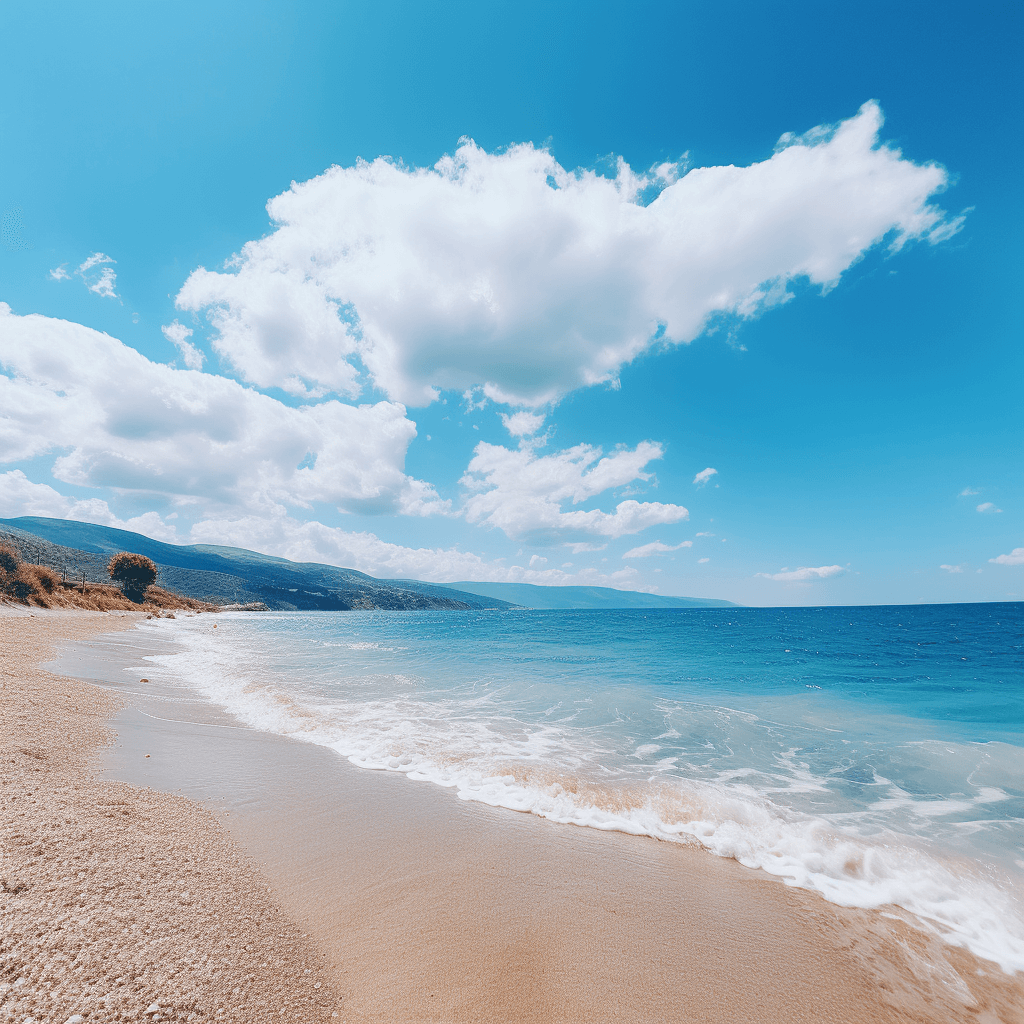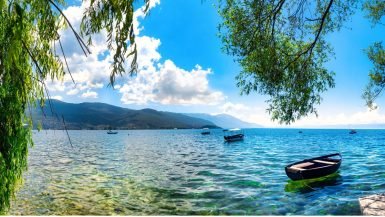Are you planning a trip to Greece in September? You are in for a treat! You might think that September is the worst time to visit Greece. However, Greece weather in September is often considered ideal for travellers who want to enjoy the beauty of the country with less crowds and pleasant temperatures. Here’s a comprehensive guide to help you understand what to expect from the Greece weather September and how to make the most of it.
Weather in Greece Overview
1. Temperature
- General Range: Expect temperatures to range from 20°C to 30°C (68°F to 86°F).
- North vs. South: The country’s north can be more relaxed, especially in the evening, while southern islands like Crete maintain warmer temperatures.
2. Sunshine and Daylight
- Hours of Sun: Greece weather September enjoys about 9-11 hours of daylight.
- Sunset Times: Sunsets occur earlier than the summer months, typically around 7:30 PM to 8:00 PM, offering delightful evenings.

3. Rainfall
- Showers: Greece weather in September sees a slight increase in rain, but it’s usually light and short-lived.
- Frequency: On average, you might experience rain for 2-3 days throughout the month.
4. Sea Temperature
- Swimming Conditions: The sea remains warm from the summer heat, averaging around 25°C (77°F), perfect for swimming and water activities.
What is Greece Weather September Most Suitable For:
1. Ideal for Sightseeing: Cooler temperatures make exploring ancient ruins and wandering around cities like Athens and Thessaloniki more enjoyable.
2. Beach and Swimming: With warm sea temperatures and fewer beach crowds, September is excellent for beach lovers.
3. Outdoor Activities: It’s a fantastic time for hiking, sailing and exploring nature, as the weather is mostly stable and not too hot.
Tips for packing for a holiday in Greece in September
- Light Clothing: Pack summer clothes, but include a light jacket or sweater for the evening.
- Sun Protection: Sunscreen, hats, and sunglasses are still essential.
- Comfortable Shoes: Ideal for walking on cobblestone streets and exploring archaeological sites.
- Swimwear: Remember your bathing suit for those beautiful beaches and still warm seas.
Events and Carnivals
September is the time for various cultural and religious festivals in Greece, so keep an eye out for local celebrations, especially in smaller towns and islands. From cultural celebrations to music and food festivals, there is something for everyone. Here’s a guide to some of the best festivals and events to experience in Greece during September.
1. Athens International Film Festival
- Location: Athens
- About: This festival shows a variety of films, from independent films to blockbusters, often with premieres and special screenings.

2.Thessaloniki International Fair
- Location: Thessaloniki
- About: One of Greece’s largest fairs includes exhibitions from various industries, cultural events and political speeches, often focusing on innovation and entrepreneurship.
3. Kalamata International Dance Festival
- Location: Kalamata
- About: Although mostly held in July, some events spill over into September. This festival celebrates contemporary dance featuring performers from around the world.
4. Reworks Festival
- Location: Thessaloniki
- About: A music festival that brings together different music genres, including electronica, techno and indie, along with visual art

Visiting Greece in September means enjoying the last breaths of summer with the added advantage of fewer crowds, pleasant weather and the warmth of the Greek sun. Let’s say you want to go there for the beaches, historic sites or vibrant culture; September in Greece offers comfort and beauty. It is the ideal time for your Greek adventure, as the Greece weather in September is a blessing.
Is There A Worst Time To Visit Greece?
Understanding the less favourable periods to visit can help you plan a more enjoyable vacation in Greece. Here’s a schedule of what might be the worst time to visit Greece, based on weather, crowds and other factors.
The Peak of Summer: July and August
Why it Might Be Less Ideal:
- Extreme Heat: Temperatures can rise above 35°C (95°F), which can be uncomfortable, especially for sightseeing and outdoor activities.
- Crowds: These months attract the most tourists, leading to overcrowded beaches, attractions and long lines at historic sites.
- Prices: Peak season means top prices. Accommodation and flights are often significantly more expensive, making it the worst time to visit Greece.
The Winter Months: December to February
Why it Might Be Less Ideal:
- Colder Weather: Although not extremely cold, temperatures are dropping, especially in the north and in mountainous areas.
- Limited Ferry Services: Many ferry services to the islands have been reduced, challenging island hopping.
- Fewer Activities: Some tourist attractions, hotels and restaurants on the islands close during the winter.
Greek Orthodox Easter Week
Why it Might Be Less Ideal:
- Closure of Services: Many shops, services and attractions may close for Easter, especially in smaller towns and villages.
- Transportation: Domestic travel can be tiring as many Greeks travel to their hometowns for vacation.
While there isn’t a worst time to visit Greece, specific periods can present challenges depending on what you’re looking for from your vacation. By avoiding the height of summer and the depths of winter, you can enjoy a more relaxed and less expensive Greek experience. Remember, every season in Greece has its charm and can offer unique experiences, from sun-drenched beaches to festive winter celebrations.





Leave a reply